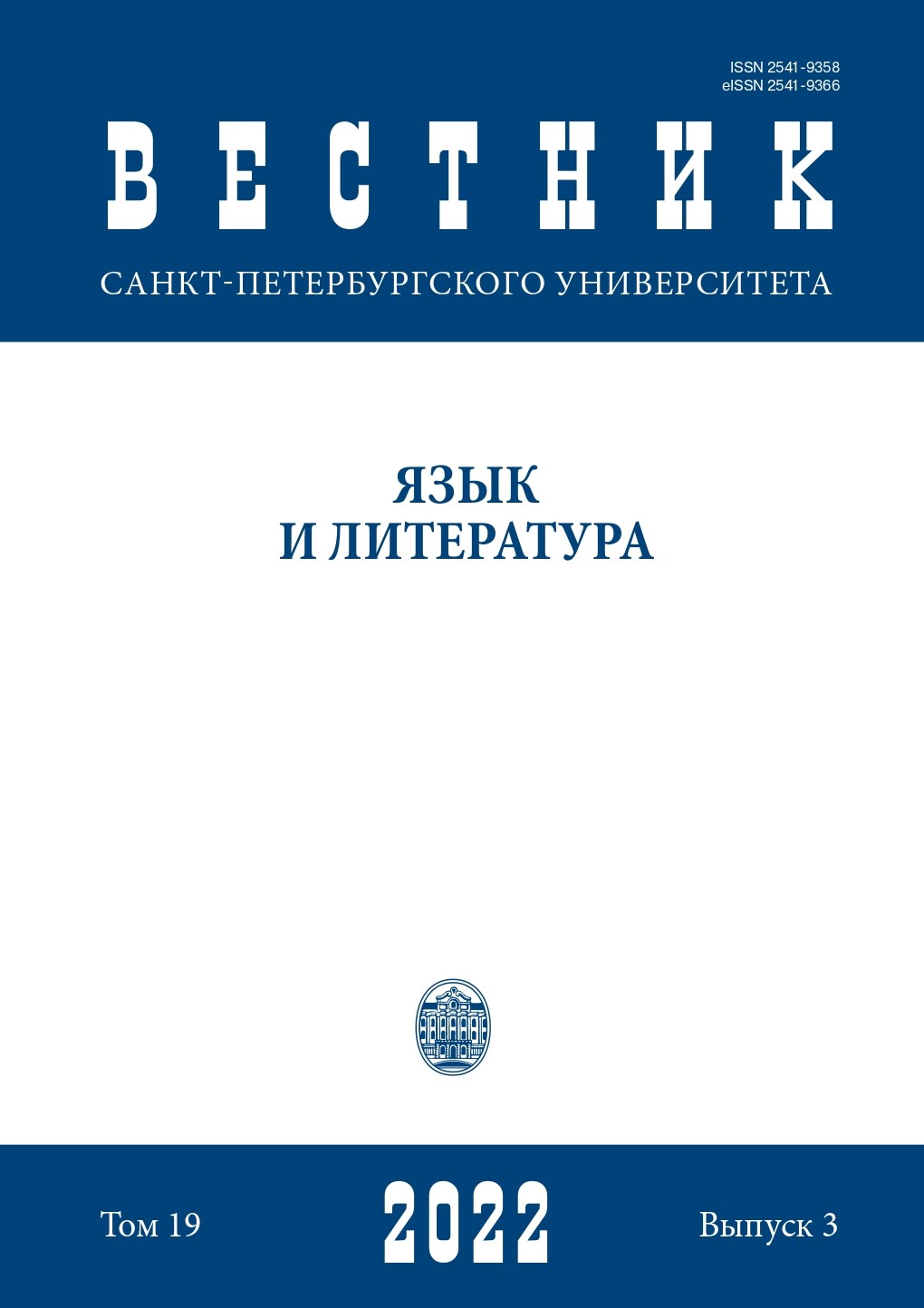O seeking Flaubert, you have foreseen us (The Russian translations of Salambbô as an indicator of the change of cultural epochs)
DOI:
https://doi.org/10.21638/spbu09.2022.301Abstract
Gustave Flaubert is one of those writers who had a significant impact on the formation and the development of the Russian literary process; being the brightest representative of French literature of the era of realism, Flaubert played a significant role in Russia’s transitional epoch. Working on the novel Salambbô (1862), Flaubert foresaw its ill fortunes in modern France and
in the modern epoch as a whole. Since the 1890s, many representatives of Russian modernism saw a teacher and a predecessor in the French writer and translated his works (I.Bunin, D.Merezhkovsky, K.Balmont, M.Gorky, N.Minsky, Al. Chebotarevskaya, M.Voloshin, A.Blok, Vyach. Ivanov, B.Zaitsev, M.Kuzmin). A line from Balmont’s poem The World Communion (1905) — O seeking Flaubert, you have foreseen us — can serve as an illustration of Flaubert’s Russian fate. In general, the interest in Salambbô is explained by an acute interest in exotic epochs and countries, a desire to distance oneself from vulgar, bourgeois in modernity, a heroine whose image is built on the intersection of mystical and erotic elements in woman’s
life, а striving for perfection in the mastery of word. Many Russian writers of the late 19th and early 20th centuries passed through the school of Flaubert with his wonderful experience of recreating the atmosphere of Carthage and the Middle East, relying both on historical sources, as well as in the field of language and style, on Holy Scripture.
Keywords:
transitional epochs in literature, literary translation, Gustave Flaubert, Russian modernism
Downloads
References
Андрущенко 2007 — Андрущенко Е.А. Спутники Д.С.Мережковского. В кн.: Мережковский Д.С. Вечные спутники: Портреты из всемирной литературы. Сер.: Лит. памятники. СПб.: Наука, 2007. С. 703–757.
Багно 2009 — Багно В.Е. «Дон Кихот» в России и русское донкихотство. СПб.: Наука. 2009.
Багно 2019 — Багно В.Е. «Оазис, где рокочет лира…» (Николай Гумилев — переводчик). В кн.: Гумилев Н.С. Переводы. СПб.: Пушкинский Дом; Вита Нова, 2019. С. 5–16.
Бахтин 1996 — Бахтин М.М. О Флобере. В кн.: Бахтин М.М. Собрание сочинений. В 7 т. Т. 5. М.: Русское слово, 1996. С. 130–137.
Динерштейн 2014 — Динерштейн E.А. Синяя птица Зиновия Гржебина. М.: Новое литературное обозрение, 2014.
Заборов 2011 — Заборов П.Р. И.С.Тургенев — переводчик «Иродиады» Г.Флобера. Заборов П.Р. Россия и Франция. Литературные и культурные связи. СПб.: Петрополис. 2011. С. 318–325.
Корецкая 1989 — Корецкая И.В. Горький и Вячеслав Иванов. В кн.: Горький и его эпоха: Исследования и материалы. Вып. 1. М.: Наука, 1989. С. 169–184.
Минц 2004а — Минц З.Г. Новые романтики: К проблеме русского пресимволизма. В кн.: Минц З.Г. Блок и русский символизм: избранные труды. В 3 кн. Кн. 3: Поэтика русского символизма. СПб.: Искусство, 2004. С. 162–174.
Минц 2004б — Минц З.Г. Статья Н.Минского «Старинный спор» и ее место в становлении русского символизма. В кн.: Минц З.Г. Блок и русский символизм: избранные труды. В 3 кн. Кн. 3: Поэтика русского символизма СПб.: Искусство, 2004. С. 150–161.
Нымм 2003 — Нымм Е. Литературная позиция Иеронима Ясинского (1880–1890-е годы). Тарту: Tartu University Press, 2003.
Петренко 1963 — Петренко Н.М. «Библейские» параллели в романе Г.Флобера «Саламбо». Ученые записки. М-во просвещения РСФСР. Чечено-Ингуш. гос. пед. ин-т. Сер. Филологии. № 18. Вып. 11. Грозный: [Б.и.], 1963.
Downloads
Published
How to Cite
Issue
Section
License
Articles of "Vestnik of Saint Petersburg University. Language and Literature" are open access distributed under the terms of the License Agreement with Saint Petersburg State University, which permits to the authors unrestricted distribution and self-archiving free of charge.






